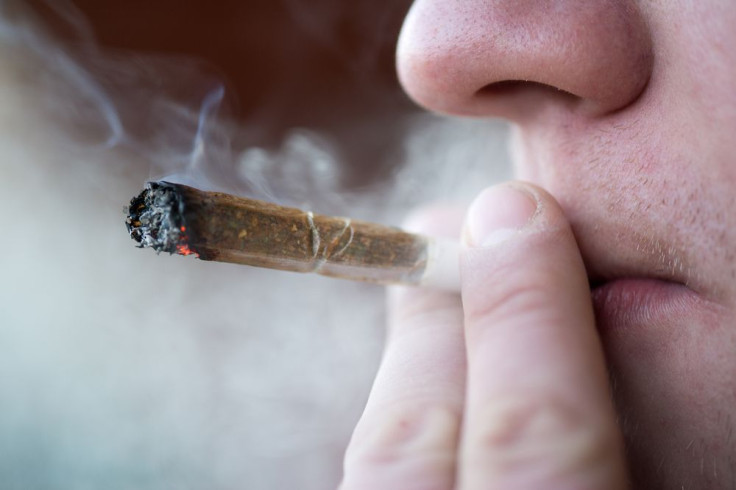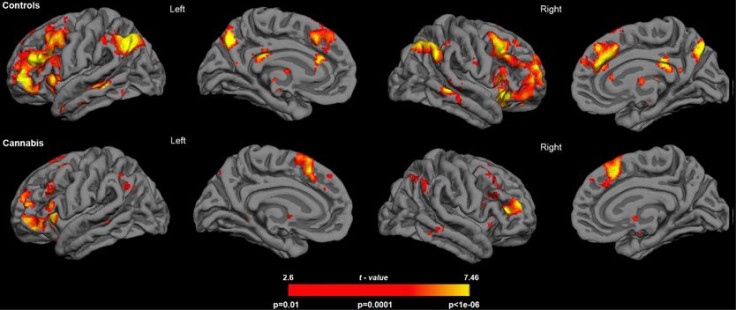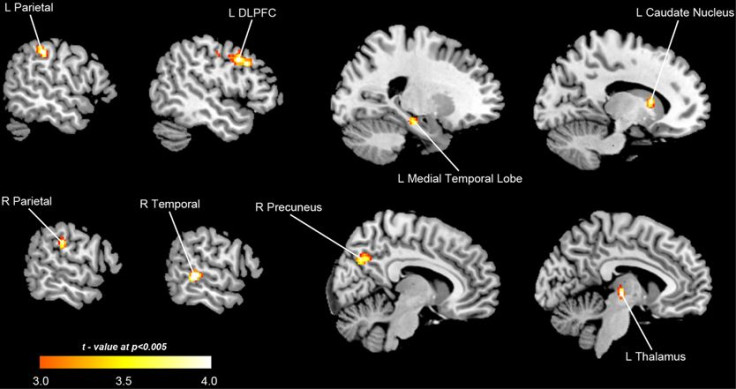MRI Scans Show Smoking Weed Lowers Hippocampus Activity, Creating False Memories

It’s no secret smoking marijuana can lead you to trip and hallucinate, compromising your memory. Marijuana users are stereotyped as forgetful and absent-minded, but science suggests tetrahydrocannabinol (THC) has significant effects on the brain. According to a recent study published in the journal Molecular Psychiatry, chronic cannabis smokers are more susceptible to false memories, even after not consuming cannabis for a month.
The cannabinoids in marijuana, like THC and cannabidiol (CBD), have the ability to exert their influence by monitoring how cells communicate — send, receive, or process messages. When THC enters the body it gets into the brain and attaches to the cannabinoid receptors, where it overwhelms the endocannabinoid system in the brain. This throws your neurons out of balance and slows down communication between cells and impairs working memory.
In an effort to peer into the unknown, a team of researchers from the Human Neuropsychopharmacology group at the Biomedical Research Institute of Hospital de Sant Pau and from the Autonomous University of Barcelona explored cognitive function in chronic marijuana smokers and their ability to distinguish between real and false memories. Functional magnetic resonance imaging (MRI) scans were performed on 16 “heavy cannabis users,” defined in the study as people who have been smoking pot every day for at least two years, and compared to a healthy control group. The participants were put through a series of tests involving word games and asked to identify which words on a list were previously shown to them and which ones weren’t. They were all asked to identify the words belonging to the original list.

The findings revealed chronic marijuana users were more likely to say they had seen the semantically related new words more often than the healthy participants. The researchers saw memory deficiencies despite the fact participants stopped smoking marijuana one month before the study. Smoking also led to a less active hippocampus, which is the area of the brain associated with storing and retrieving memories.
“These deficits show a neural basis and suggest a subtle compromise of brain mechanisms involved in reality monitoring. This lingering diminished ability to tell true from false may have medical and legal implications,” the researchers wrote in the paper.
This study weeds out the doubt of whether marijuana affects memory function and cognitive control. It adds to recent growing research published in the journal that found adults who smoked marijuana regularly as teens were more likely to have memory problems in life. As teens, these adults used marijuana daily for three years. MRI scans revealed an abnormally shaped hippocampus by the time they were in their early 20s and as a result performed around 18 percent worse in long-term memory tests than those who had never touched the drug.

While smoking marijuana can impair memory, it can help people forget bad memories. A 2002 study published in the journal Nature found the natural chemicals similar to the active ingredient in marijuana can wipe out traumatic memories. To do so, researchers say, the body’s innate cannabinoids flood the amygdala — the “fear center” of the brain — and inhibit the action of nerve cells.
So, the truth is cannabis does have a prolonged effect on the brain that leads to structural and functional changes — for better or for worse.
Sources: Kulisevsky J, Martinez-Horta, Riba J. Telling true from false: cannabis users show increased susceptibility to false memories. Molecular Psychiatry. 2015.
Breiter HC, Cobia DJ, Csernansky JG. Cannabis-related episodic memory deficits and hippocampal morphological differences in healthy individuals and schizophrenia subjects. Hippocampus. 2015.



























